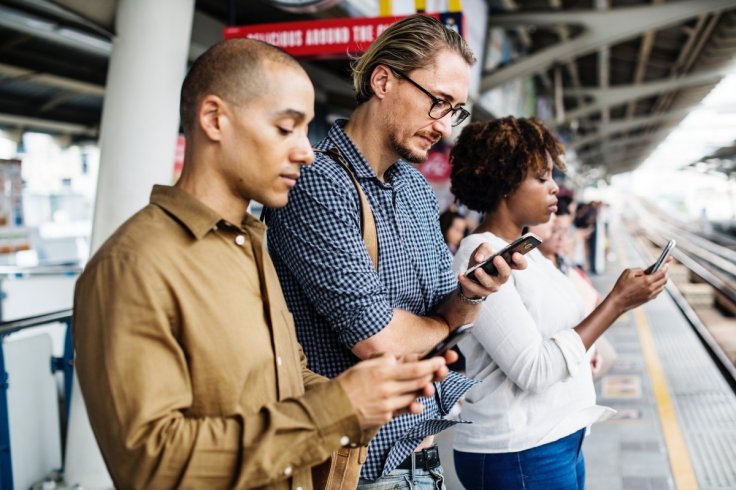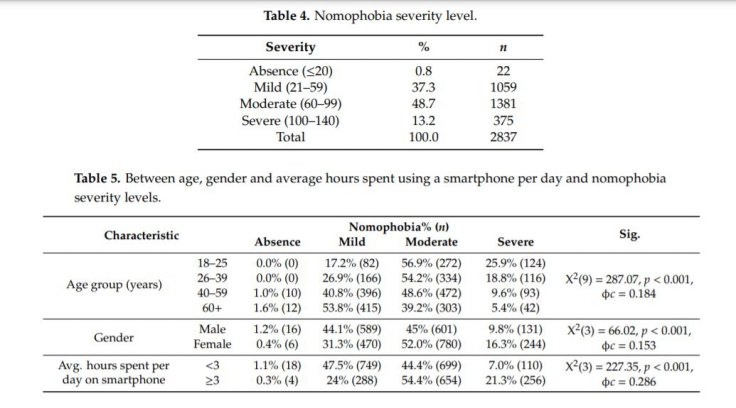Smartphone has been one of the most important technological advancements in recent times. The computer in your pocket can perform a wide variety of jobs. Hence, it has become an important accessory in our daily lives. But can you stay without your smartphone? While many will say they can easily live without it, in reality, that is next to impossible.
According to a recent survey, most people — from millennials to Generation Z and Generation alpha — cannot stay without a mobile device. Known as nomophobia, the so-called disorder plagues society. In Australia, as per the survey, 99 percent of people suffer from the disorder.
What is Nomophobia?
The young generation of today's society suffers from a range of obscure socio-psychological problems. The phenomenon, known as FOMO or 'Fear of Missing Out', has been observed the most. But behind all the problems, the main culprit is your mobile device. If you are without it, you can suffer from a 'condition' called nomophobia or "no mobile phone phobia". It is the fear of being without a mobile phone.

The term was first coined by the UK Post Office in a 2010 study. It conducted a survey through YouGov and found that nearly 53 percent of users in the UK had some form of anxiety including "losing a mobile phone, running out of battery, credit or no network coverage". Since then, the number has only grown. A recent study, conducted by Fareed Kaviani, a PhD student at Monash University, and his colleagues found that nomophobia was more of an obsessive-compulsive behavior rather than fear.
New Study
Out of 2,837 people surveyed, 99 percent had some degree of nomophobia. Of them, 13.2 percent had a severe degree of the disorder while nearly half exhibited a moderate degree of nomophobia. Less than one percent had no nomophobia and in 37.3 percent of people, it was mild. The researchers found that people who use mobile phones for more than three hours are likely to suffer from nomophobia.

"It might seem quite an innocuous emotion to be fearful of not having a smartphone because it does seem like a rational response when smartphones are so entrenched into our everyday lives. But it also means we are more likely to use it when we shouldn't be using it," Kaviani, the lead author of the study, told The Sydney Morning Herald.
Kaviani said that as users used their smartphones for longer durations, they showed problematic behavior. It included using a mobile phone in dangerous situations such as while driving and crossing the road. Apart from that such people also used phones in prohibited places such as movie theaters and gas stations.
As for statistics, 78.3 percent of people in the age group of 18-25 years spent more than three hours on a mobile phone while people over 60 years of age spent fewer hours on their mobile devices. Gender wise, women are more prone to nomophobia than men and spend more time on their mobile phone. Nearly 70 percent of women suffer from moderate to a severe degree of nomophobia while in men the number is 55 percent.

Natalie Coulson, 42, from Manly, Sydney said she could relate to the problem as she carried her phones everywhere even as she moved between rooms in her house. "When I'm not sure where my phone is, I get worried about how I'm going to cope. It's like when I go out without wearing rings — I feel naked without my phone," she explained.
Mental Health Problems
The problem of over-dependence on mobile phones became evident during the COVID-19 pandemic. As people stayed home due to movement restrictions imposed by the governments, people turned to their mobile phones for Zoom calls, online shopping, tracking COVID-19 updates, mobile games and calls amongst many others.
However, the overuse of mobile phones can lead to mental health problems. As per a study published in the journal Computers in Human Behavior, psychologist and professor at the University of Illinois, Alejandro Lleras, observed that overuse of mobile phones could lead to depression and anxiety. Dan Auerbach, a psychotherapist from Sydney, said that overdependence on a mobile phone could damage interpersonal relations in the family. "Whether or not we're paying good attention to each other, is a really central issue in most relationships," he said.









